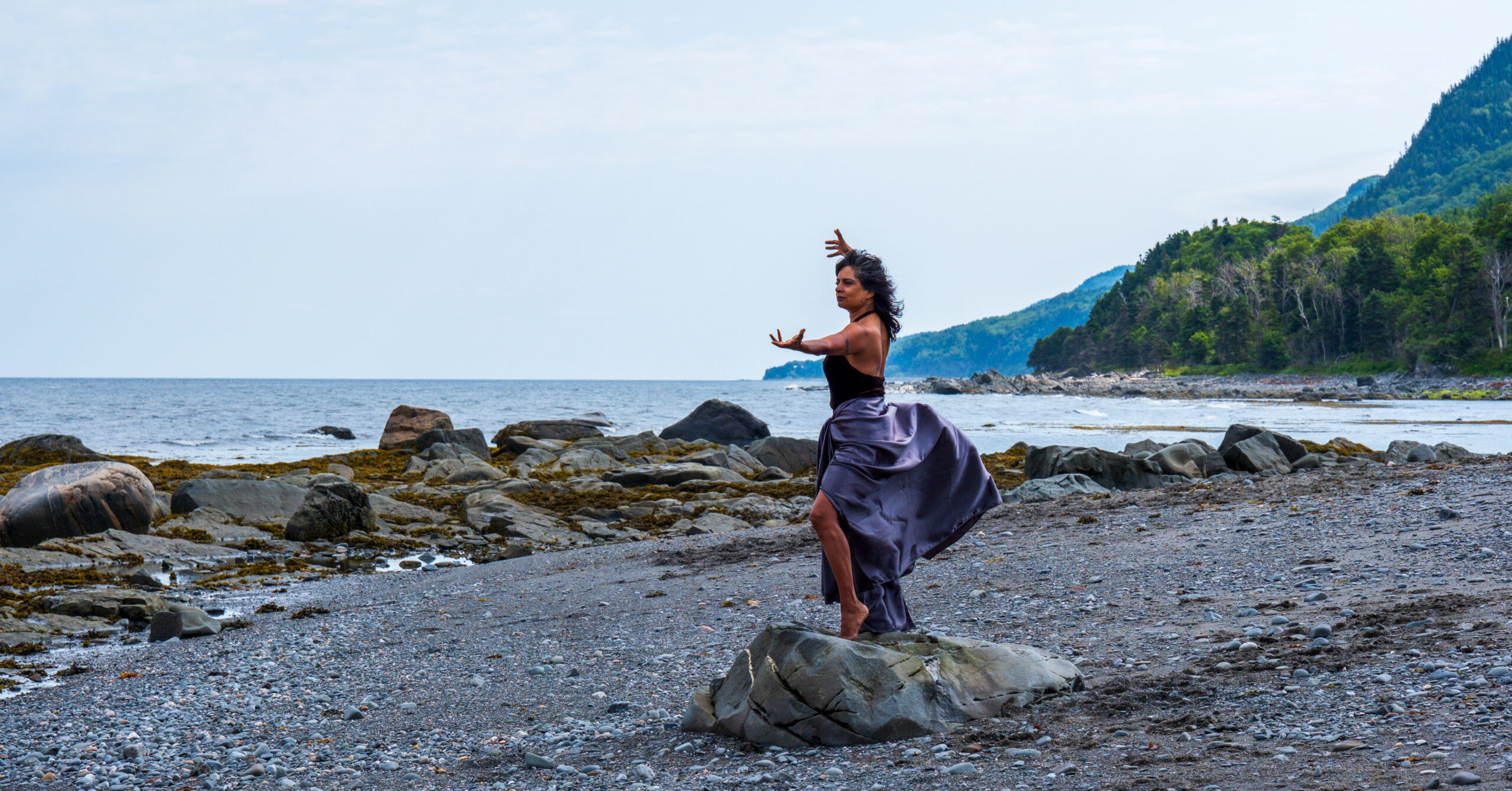
Photo : Nova Bhattacharya (FURIES 2024) © Moïse-Marcoux Chabot
Under the artistic direction of Priscilla Guy, Sébastien Provencher and Karla Etienne, FURIES is a contemporary dance festival on a human scale, showcasing powerful choreographic forms in the everyday landscape of the Haute-Gaspésie region since 2019.
With its PRO Day and its international component, as well as its development initiatives for young people and the next generation, FURIES is a true crossroads for contemporary dance!
Cam Gendron, Béatrice Dutil, Catherine Boily, Antoine Arcand, Maïra Abran, Claudie Guertin, Marie-Pier Bédard, Noel Vézina, Matthew Kevork, Clémence Pépin, Francine Guimont, Lila Dubois Pagese, Léa Bernier, Sorey Prom-Tep, France Séguin, Ben Harvey, Gabriel Olivella, Rose Béliveau Sohier, Alicia Desfossé, Charles Lecourtois, Malcolm Larochelle, Laurence Gagnon, Gabrielle Ouellette, Suzie Larrivée, Gabrielle Huot-Foch.
general → info@furiesfestival.com · press relations → comm@mandolinehybride.com
FURIES is a Mandoline Hybride presentation in collaboration with
Thanks to our main financial partners
Thanks to : Ministry of Culture and Communications, Québec Government Office in London, Bureau du Québec à Barcelone, Culture Gaspésie, Municipalité de Marsoui, Comité de développement de Marsoui, La Chapelle du Cap, École primaire Notre-Dame-des-Neiges, Couvent de Sainte-Anne-des-Monts, La Pointe Sec, Marie Hudon et Jean-Jacques Élie, Patrice Legendre, Danse-cité, Auval, Microbrasserie Le Malbord, Épicerie Thibault, Château de Cartes, Dépanneur Marsoui, Gras dur, Grain blanc, Mario Labelle, Centre d’action bénévole des Chic-Choc, Stéphane Sainte-Croix, Député de Gaspé, Alexis Deschênes, Gaspésie—Les Îles-de-la-Madeleine—Listuguj, Sonia Bélanger, Minister Responsible for Seniors, Maïté Blanchette-Vézina, Minister Responsible for the Bas-Saint-Laurent Region and the Gaspésie–Îles-de-la-Madeleine Region, Centre d’action bénévole des Chic-Chocs, L’Encre noire, Poème en août, Agora de la danse.
Thanks to our accomplices : Festival Arts Saint-Sauveur, École de danse contemporaine de Montréal, MARIE4poches
As a festival on a human scale with limited resources, FURIES does not issue a call for projects. However, it is possible to send us an unsolicited submission, which we will consider within a reasonable timeframe, given that the artistic programming team only works 10 to 15 hours a month from September to May.
The FURIES artistic team has to make difficult choices among a plethora of artistic proposals, mainly in dance, but also in music, performance, physical theater, storytelling and circus, as indicated by its mandate to discover and network disciplines through dance. Only around 15 works are selected each year. Many people submit projects to us, and we have to turn down the vast majority.
Since programming is planned about 10 months in advance, early fall is a good time to send in your projects for the next edition. To submit a project, please fill in this form.